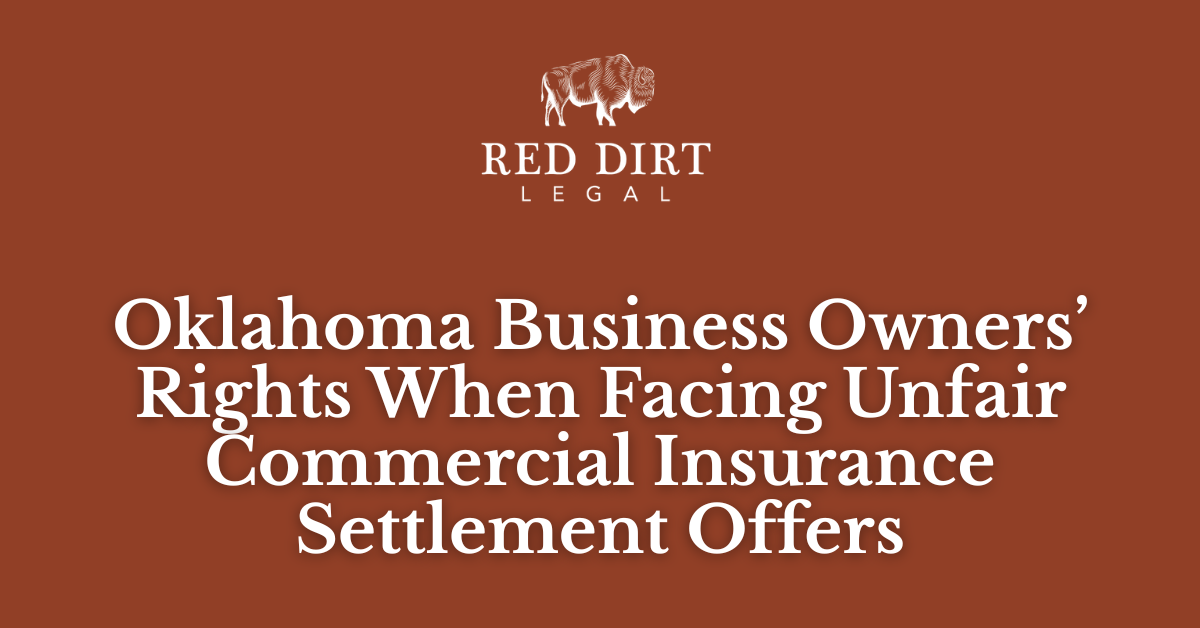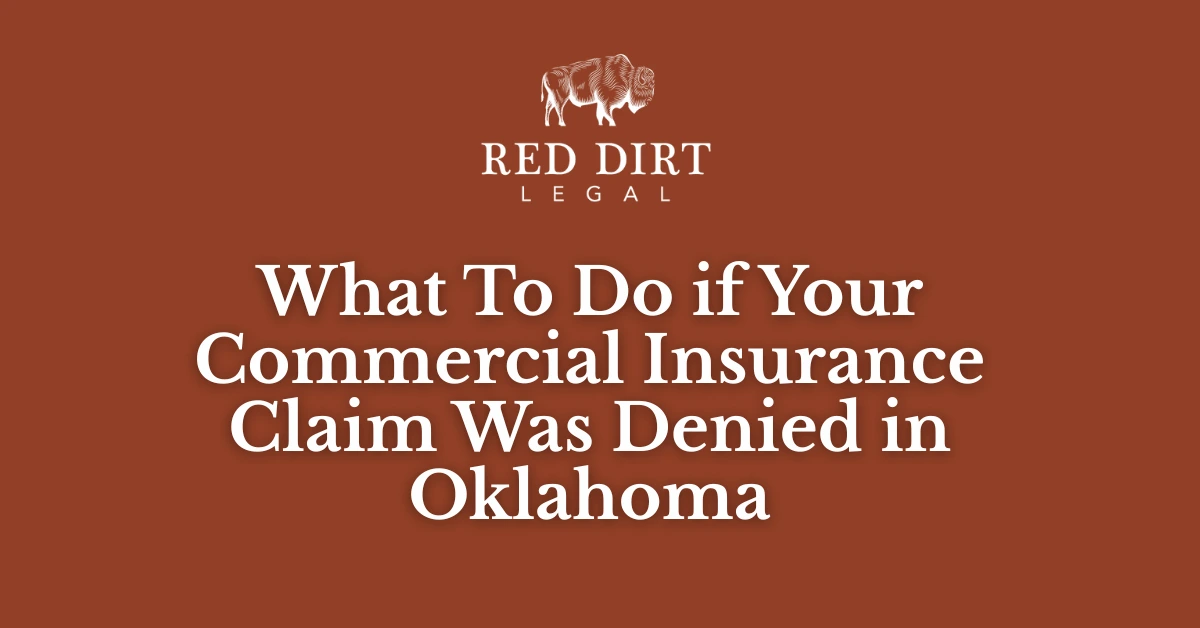Businesses rely on commercial insurance policies to protect against a wide range of risks, from property damage and theft to liability claims and business interruptions. But when something goes wrong and the insurance coverage doesn’t respond the way you expected, it can lead to serious financial strain.
This blog breaks down what “coverage gaps” are, how they lead to insurance disputes, and what Oklahoma business owners should know to protect themselves.
At Red Dirt Legal, we’ve worked with business owners across Oklahoma facing frustrating and costly policy disputes. When your coverage falls short (or your insurer isn’t playing fair), it’s important to know what options are available.
What Are Coverage Gaps?
A coverage gap happens when a policy either excludes a specific type of risk or contains unclear wording that the insurer later interprets in their own favor. These gaps are often buried in the fine print, making them difficult to spot until a claim is denied.
Some common examples of coverage gaps include:
- Improper endorsements that override coverage terms
- Exclusions for employee-related claims in general liability policies
- Inadequate limits for business interruption coverage
- Ambiguous language that insurers exploit to deny claims
Even with a comprehensive commercial policy, small wording differences can leave a business exposed, something many business owners don’t realize until an attorney reviews the fine print during a dispute.
How Do Coverage Gaps Lead to Disputes?
Coverage gaps are often discovered only after a loss occurs and the claim is filed. That’s when insurers may:
- Deny the claim outright
- Offer a partial payment
- Classify the damage under an exclusion
- Delay responding or paying without justification
Disputes arise when a business believes a loss should be covered, but the insurer refuses or underpays. These conflicts can lead to bad faith allegations if the insurer fails to meet its obligations under Oklahoma law.
Examples of Gaps That Commonly Cause Issues
Not every policy problem is obvious upfront. Here are some real-world situations where coverage gaps can become major problems:
- A restaurant suffers smoke damage, but the policy only covers direct fire damage.
- A contractor is sued over defective work, but their liability policy excludes design errors.
- A retail store loses income during repairs, but their policy limits business interruption to 30 days, far less than needed.
- A hailstorm damages a commercial roof, but the insurer denies the claim, citing prior wear and tear.
In each of these examples, the business owner expected coverage that wasn’t there, or was interpreted narrowly, sometimes only becoming clear during a policy review with an attorney familiar with commercial insurance disputes.
How Can Business Owners Avoid These Gaps?
While no policy is perfect, there are ways to minimize risk:
- Review coverage annually. Businesses evolve, and policies need to keep up.
- Work with knowledgeable agents or brokers. Don’t rely solely on automated quotes or vague policy summaries.
- Ask questions about exclusions. Especially for business interruption, cyber liability, and employee-related risks.
- Keep detailed records. Having solid documentation makes it easier to challenge a denied claim later.
Understanding your policy before a loss happens is key to avoiding disputes after the fact.
What If You’re Already in a Dispute?
If your business is already facing a denied or underpaid claim, the first step is to gather all communications and policy documents. Pay attention to timelines, especially if you’re dealing with a delayed claim.
Common issues include vague denial letters, unexplained policy interpretations, or shifting reasons from the insurance company. Business owners who understand their coverage are in a better position to push back effectively.
Know What’s in Your Policy Before Trouble Starts
Coverage gaps aren’t always obvious, until they’re costing you money. Taking time to understand your policy, review it regularly, and ask the right questions can make all the difference when a claim is on the line.
If your commercial insurance claim has been delayed, underpaid, or denied due to unclear coverage terms, it may be time to contact Red Dirt Legal and learn what steps you can take to protect your business.









